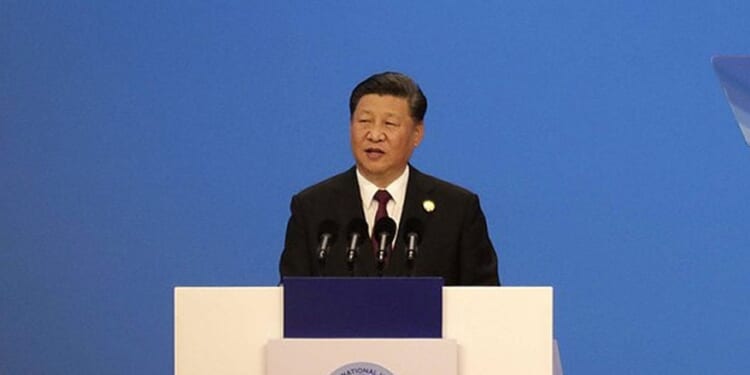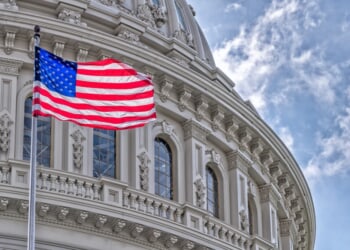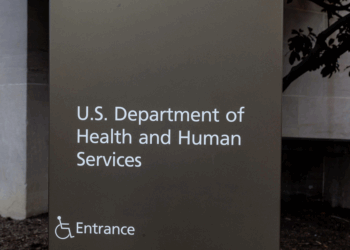China announced new export controls Thursday on critical minerals vital to high-tech manufacturing, escalating tension with the United States just weeks before President Donald Trump is expected to meet with Chinese President Xi Jinping.
Rare earths — a group of 17 metallic elements integral to the production of vehicles, weapons systems, wind turbines, smartphones, medical devices and other advanced technologies — have become a central issue in the U.S.-China trade negotiations. Despite their strategic and commercial importance, the U.S. imports 80% of the rare earths it consumes, primarily from China, which dominates global rare-earth mining and 92% of refining capacity.
Under the new rules, foreign suppliers must obtain Beijing’s approval to export any product made with China’s rare-earth processing technology or containing rare-earth materials that make up as little as 0.1% of the item’s value, according to The Wall Street Journal. Beijing announced the measures as President Donald Trump and Chinese President Xi Jinping prepare for high-level talks, beginning with a summit in South Korea in late October.
“The White House and relevant agencies are closely assessing any impact from the new rules, which were announced without any notice and imposed in an apparent effort to exert control over the entire world’s technology supply chains,” a White House official told the Daily Caller News Foundation.
Beijing’s approval will also be required for the export of technology used in rare earth mining and smelting, as well as for magnet manufacturing. The Chinese government also added five rare-earth elements to its existing control list, bringing the total number of restricted elements to 12 out of 17 rare-earth types, according to CNN.
Beijing said the regulations are necessary to “safeguard national security.”
The risks of relying on China for such critical supplies were exposed in April when Beijing imposed new export controls on several rare earth elements in retaliation against Trump’s “Liberation Day” tariffs on Chinese goods, causing shortages. Although China pledged in May to ease restrictions, the export controls suggest that Beijing is still leveraging rare earths for strategic gain.
“The latest export control announcement from Xi Jinping’s government on rare earths is a significant development — and escalation,” former Commerce Department Undersecretary Nazak Nikakhtar told the DCNF. “The measures appear to go beyond earlier restrictions that focused mainly on certain heavy rare earth elements used in high temperature magnets, now extending controls to the technology and equipment involved in processing and recycling rare earths, as well as to sectors beyond defense, such as semiconductors. This should be a wake-up call to the U.S. Government that we need to invest in and appropriate more to domestic capabilities.”
The Trump administration has accelerated efforts to expand domestic mining and processing to reduce reliance on Chinese supply. In July, the Department of Defense purchased $400 million in MP Materials stock, which operates the only U.S.-based rare-earth minerals mine.
But Wade Senti, president of Advanced Magnet Lab (AML), a U.S. permanent magnet company, says more investment is needed.
“China will look to exploit the bottlenecks within the rare earth supply chain, which is where the United States needs to double down on investment in innovation,” Senti told the DCNF. “Collaboration between industry to solve this market-based problem is key to developing innovation that unlocks the bottlenecks in the permanent magnet supply chain. We need more funding and resources going to the companies working on these solutions.”
Senti’s company is among those innovating to counter China’s dominance, producing magnets that rely less on heavy rare-earth elements and offering U.S. companies and defense alternatives independent of China.
“These new developments underscore why the United States’ approach to magnets and rare earths must be innovative and different than before,” Senti said. “This is the only way to fully circumvent and outmaneuver China’s recurrent shocks to the supply chain.”
All republished articles must include our logo, our reporter’s byline and their DCNF affiliation. For any questions about our guidelines or partnering with us, please contact [email protected].
DONATE TO BIZPAC REVIEW
Please help us! If you are fed up with letting radical big tech execs, phony fact-checkers, tyrannical liberals and a lying mainstream media have unprecedented power over your news please consider making a donation to BPR to help us fight them. Now is the time. Truth has never been more critical!
Success! Thank you for donating. Please share BPR content to help combat the lies.
We have no tolerance for comments containing violence, racism, profanity, vulgarity, doxing, or discourteous behavior. Thank you for partnering with us to maintain fruitful conversation.

















